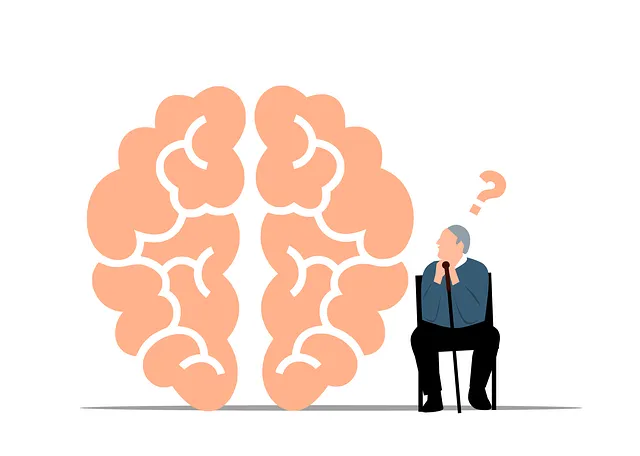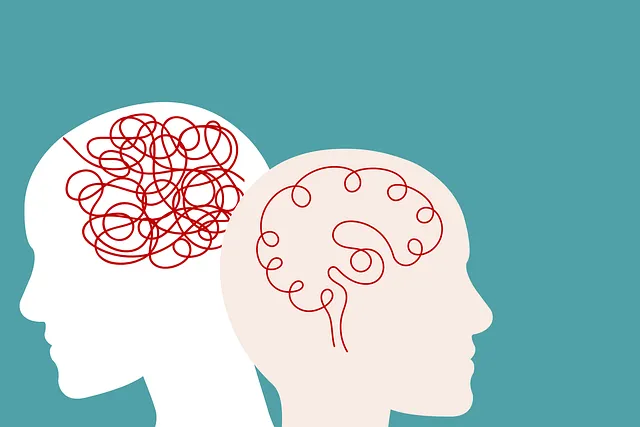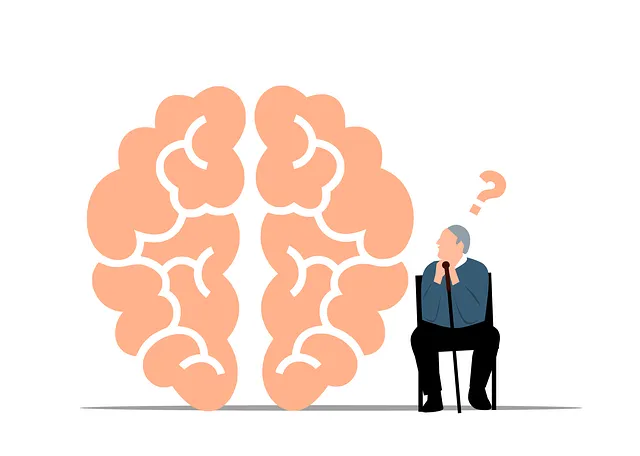The Kaiser Permanente behavioral health center in Westminster faces complex mental illness diagnosis challenges, including diverse disorders, cultural variations, and comorbid conditions. To address these issues, the center employs innovative strategies such as Stress Management Workshops, Inner Strength Development, and comprehensive Risk Management Planning. They also integrate advanced technologies like AI and machine learning to enhance accuracy, reduce misdiagnoses, and support healthcare providers' cognitive function. Patient-centered approaches, including open dialogue and mindfulness practices, build trust and improve communication, leading to more precise diagnoses. Continuous Quality Improvement initiatives ensure the center stays abreast of advancements in diagnosis and treatment, ultimately improving patient outcomes and care quality at the Kaiser Permanente behavioral health center Westminster.
Mental illness diagnosis accuracy is a critical aspect of patient care, especially at large healthcare organizations like the Kaiser Permanente Behavioral Health Center in Westminster. This article explores various efforts to enhance diagnostic precision, focusing on challenges unique to behavioral health centers. We delve into enhanced training programs, the role of advanced technologies, patient-centered communication strategies, and continuous quality improvement initiatives. By examining these approaches, we aim to contribute to the ongoing pursuit of improved mental health diagnosis at Kaiser Permanente and similar institutions.
- Understanding Diagnostic Challenges at Kaiser Permanente Behavioral Health Center Westminster
- Enhancing Training Programs for Accurate Mental Illness Diagnosis
- Incorporating Advanced Technologies in Clinical Settings
- Patient-Centered Approaches to Improve Communication and Trust
- Continuous Quality Improvement Initiatives and Their Impact on Diagnostic Accuracy
Understanding Diagnostic Challenges at Kaiser Permanente Behavioral Health Center Westminster

At Kaiser Permanente Behavioral Health Center Westminster, navigating the complexities of mental illness diagnosis is a multifaceted challenge. The diverse nature of psychological disorders often leads to diagnostic ambiguity, particularly in cases presenting with comorbid conditions or unique life circumstances. This issue is further exacerbated by the dynamic interplay between cultural backgrounds and symptoms, which can vary significantly among patients. Accurately diagnosing mental health issues is crucial for developing effective treatment plans, making it a priority area at the center.
To address these challenges, Kaiser Permanente Behavioral Health Center Westminster employs innovative strategies. They organize Stress Management Workshops to equip both patients and mental health professionals with tools for recognizing and managing stress-related symptoms. Additionally, initiatives focused on Inner Strength Development aim to enhance resilience and coping mechanisms among patients, potentially reducing misdiagnosis by promoting overall well-being. Moreover, comprehensive Risk Management Planning is integrated into the center’s practices, ensuring that healthcare providers are prepared to handle potential risks associated with mental health assessment and treatment, ultimately improving diagnostic accuracy and patient outcomes.
Enhancing Training Programs for Accurate Mental Illness Diagnosis

At the Kaiser Permanente behavioral health center Westminster, efforts are underway to enhance training programs for accurate mental illness diagnosis. These initiatives focus on equipping healthcare providers with advanced skills and knowledge to navigate the complex landscape of mental health conditions. Through interactive workshops and real-world case studies, providers learn to identify subtle symptoms and consider comorbidities, ensuring a comprehensive understanding of each patient’s unique challenges.
The integration of burnout prevention strategies for healthcare providers is a key component of these training programs. By promoting stress management workshops and mindfulness meditation practices, the center aims to mitigate professional fatigue, enhance cognitive function, and ultimately improve diagnosis accuracy. These proactive measures not only benefit individual practitioners but also contribute to a more effective and compassionate delivery of mental health services within the organization.
Incorporating Advanced Technologies in Clinical Settings

Incorporating advanced technologies has emerged as a powerful tool to enhance mental illness diagnosis accuracy at institutions like the Kaiser Permanente behavioral health center in Westminster. With the support of artificial intelligence (AI) and machine learning algorithms, healthcare professionals gain access to sophisticated data analysis capabilities. These innovative systems can sift through vast amounts of patient information, including medical history, symptoms, and lab results, to provide more precise and timely diagnoses.
This technological advancement complements the efforts of mental health professionals by offering evidence-based recommendations tailored to individual patients. For instance, AI-driven tools can assist in identifying patterns indicative of specific disorders, such as depression or anxiety, thereby reducing potential misdiagnoses. Moreover, these technologies play a crucial role in burnout prevention strategies for healthcare providers, allowing them to focus more intently on patient care while leveraging data insights to make informed decisions and improve overall treatment outcomes, including Anxiety Relief and Empathy Building Strategies.
Patient-Centered Approaches to Improve Communication and Trust

At the Kaiser Permanente behavioral health center Westminster, patient-centered approaches are being implemented to enhance communication and build trust, crucial elements in improving mental illness diagnosis accuracy. These strategies focus on fostering open dialogue where patients feel heard and respected, enabling a more collaborative relationship with healthcare providers. By encouraging active participation and emotional expression, compassion cultivation practices, such as mindfulness and empathy training, are integrated into the patient experience.
This shift towards patient-centric care empowers individuals to share their unique perspectives and concerns, enhancing the risk assessment process for mental health professionals. Through improved communication, healthcare providers gain deeper insights into patients’ emotional regulation, allowing for more nuanced diagnoses and tailored treatment plans. Such approaches not only strengthen the doctor-patient bond but also contribute to a more accurate and effective mental health care system, reflecting the center’s commitment to revolutionary patient experiences.
Continuous Quality Improvement Initiatives and Their Impact on Diagnostic Accuracy

Continuous Quality Improvement (CQI) initiatives at healthcare institutions like the Kaiser Permanente behavioral health center in Westminster play a pivotal role in enhancing diagnostic accuracy for mental illness. These efforts involve regularly reviewing and analyzing patient care processes, data, and outcomes to identify areas of improvement. By implementing evidence-based practices and best practices from research and peer institutions, CQI initiatives ensure that clinical teams stay up-to-date with the latest advancements in diagnosis and treatment.
At Kaiser Permanente Westminster, CQI strategies focus on various aspects, including Empathy Building Strategies to strengthen patient-provider relationships, Inner Strength Development programs aimed at fostering resilience among patients, and Burnout Prevention measures for healthcare professionals. These initiatives not only contribute to more precise diagnoses but also create a supportive environment that enhances patient outcomes and improves the overall quality of care.
The journey towards enhancing mental illness diagnosis accuracy at the Kaiser Permanente Behavioral Health Center Westminster involves a multifaceted approach. By understanding the unique challenges within the system, enhancing training programs, integrating advanced technologies, fostering patient-centered communication, and implementing continuous quality improvement initiatives, there is a significant shift towards more precise diagnoses. These efforts not only benefit patients by ensuring they receive appropriate care but also strengthen the overall healthcare services provided by Kaiser Permanente.






